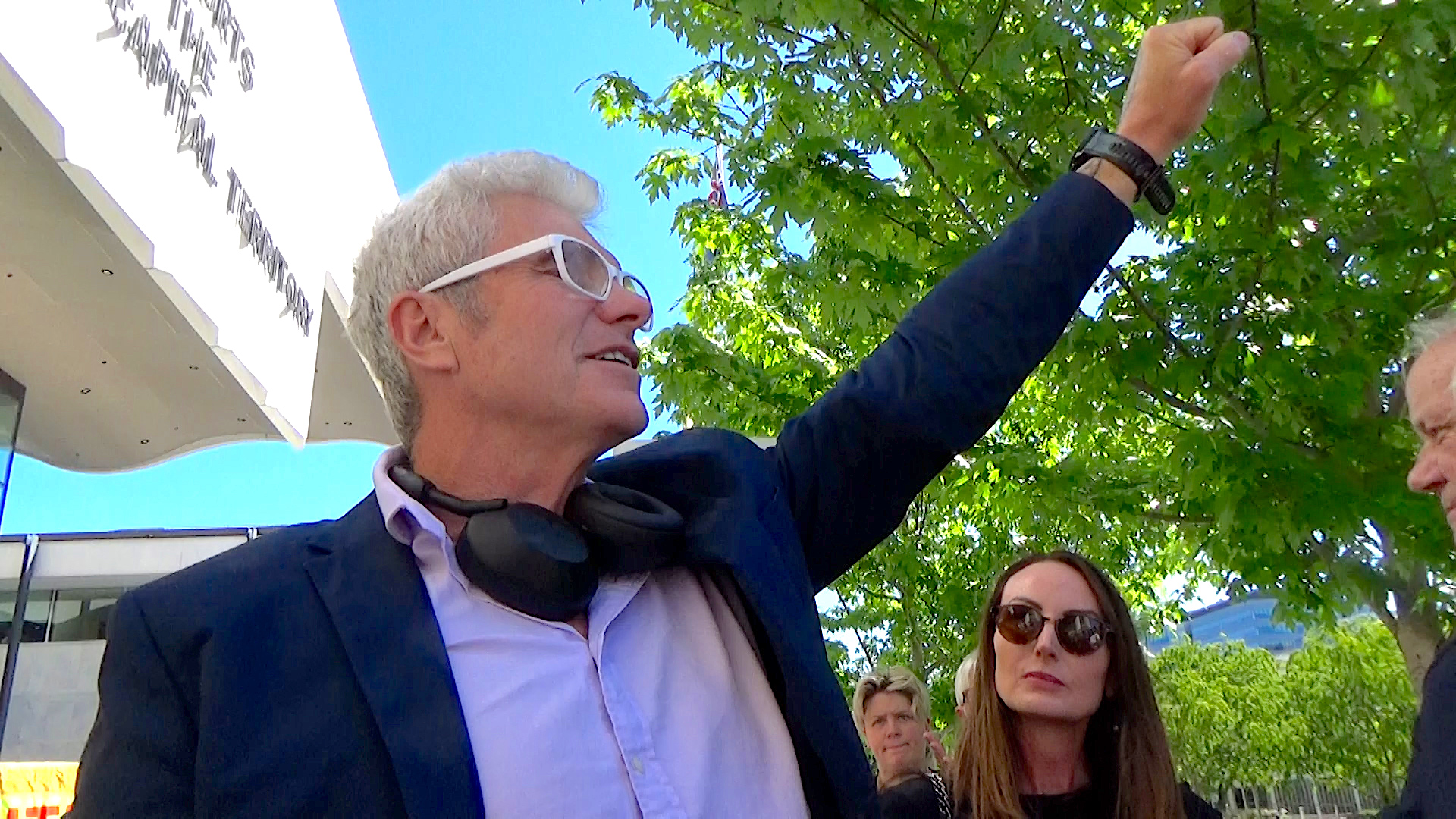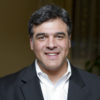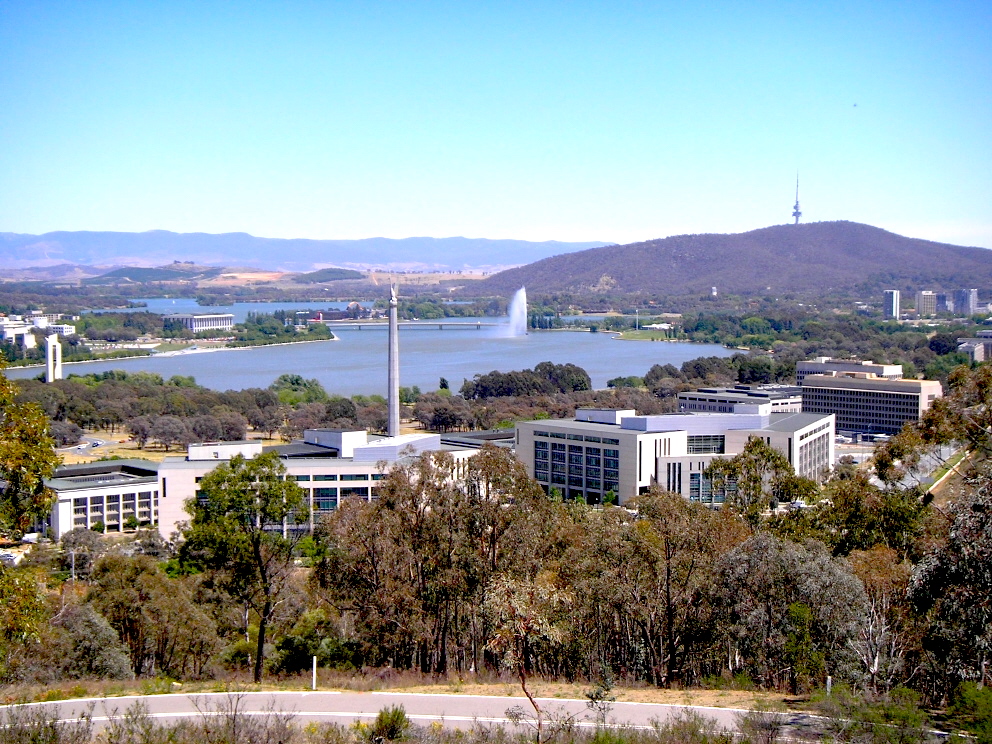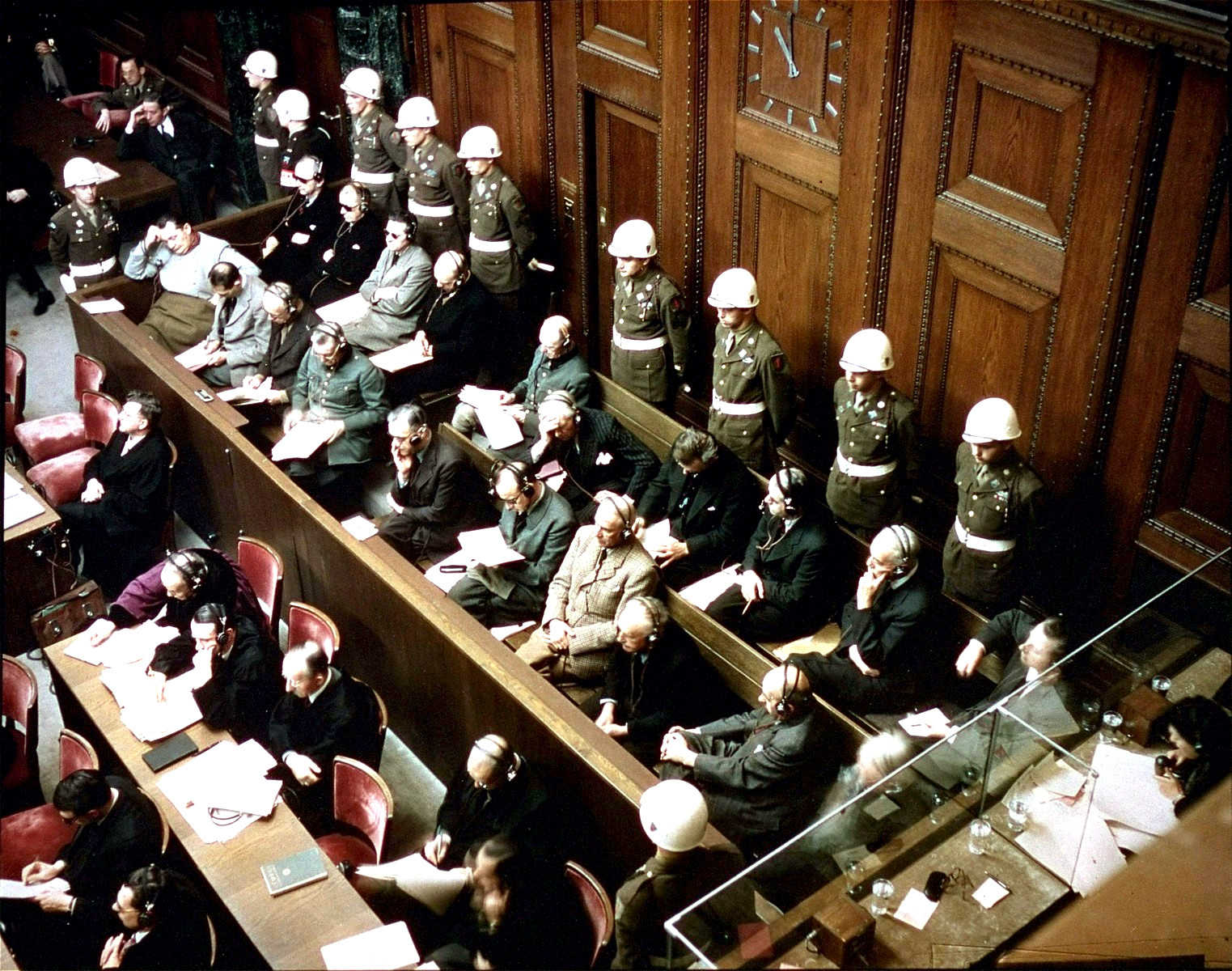By 2014 McBride had compiled a dossier into profound command failings that saw examples of potential war crimes in Afghanistan overlooked and other soldiers wrongly accused. On Tuesday he was sentenced to nearly six years in jail.

David McBride outside the Supreme Court in Canberra in November 2023. (Cathy Vogan/Consortium News)
By John Kiriakou
Special to Consortium News
 Sometimes a whistleblower does everything right. He or she makes a revelation that is clearly in the public interest. The revelation is clearly a violation of the law. And then he or she is even more clearly abused by the government. It would be great if these stories always had happy endings. Unfortunately, they don’t.
Sometimes a whistleblower does everything right. He or she makes a revelation that is clearly in the public interest. The revelation is clearly a violation of the law. And then he or she is even more clearly abused by the government. It would be great if these stories always had happy endings. Unfortunately, they don’t.
In this case, the whistleblower, the hero, Australian David McBride has been sentenced to five years and eight months in prison for telling the truth. He will not be eligible for parole for 27 months.
David McBride is former British Army officer and a lawyer with the Australian Special Forces who blew the whistle on war crimes committed by Australian soldiers in Afghanistan, specifically the killing of 39 unarmed Afghan prisoners, farmers, and civilians in 2012.
After failing to raise a response through official channels, McBride shared the information with the Australian Broadcasting Corporation (ABC), which published a series of major reports based on the material.
The ABC broadcasts in 2017 led to a major inquiry that upheld many of the allegations. Despite this, the ABC and its journalists themselves came under threat of prosecution for their work on the story.
The ABC offices in Sydney were raided by the national police, but in the end the government did not prosecute an ABC journalist because it was not in the public interest. McBride himself, however, was prosecuted for dissemination of official information.
Two Tours in Afghanistan
Let’s go back a few years. McBride at the time already was a seasoned attorney. After studying for a second law degree at Oxford University, he joined the British military and eventually moved back to Australia where he became a lawyer in the Australian Defence Forces (ADF). In that role he had two tours in Afghanistan in 2011 and 2013.
While on deployment, McBride became critical of the terms of engagement and other regulations that soldiers were working under, which he felt were endangering military personnel for the sake of political imperatives determined elsewhere.
By 2014 McBride had compiled a dossier into profound command failings that saw examples of potential war crimes in Afghanistan overlooked and other soldiers wrongly accused. His internal complaints were suppressed and ignored.

An Australian platoon on a foot patrol in a town in Uruzgan, Afghanistan, Aug. 16, 2008. (ISAF, John Collins, U.S. Navy)
McBride’s reports also looked at other matters, including the military’s handling of sexual abuse allegations. After his use of internal channels had proven ineffective, McBride gave his report to the police. And eventually, he contacted journalists at ABC.
ABC’s Afghan Files documented several incidents of Australian soldiers killing unarmed civilians, including children, and questioned the prevalent “warrior culture” in the special forces. Subsequent to McBride’s disclosures, the behavior of other Coalition Special Forces in Afghanistan also came under sustained investigation.
In many ways, McBride’s reports went further than the issues identified by ABC. Amid prevalent rumors that Australian troops were responsible for war crimes, questionable deaths in Afghanistan had led to calls for investigations.
Report Vindicated McBride & ABC
In November 2020, the Brereton report (formally called the Inspector General of the Australian Defence Force Afghan Inquiry report) was published, utterly vindicating McBride and the ABC. Judge Paul Brereton found evidence of multiple incidents involving Australian personnel that had led to 39 deaths. Among his recommendations were the investigation of these incidents for possible future criminal charges.
There would be almost no criminal charges, however. At least, there would be only one eventual criminal charge against one single soldier in the murder of Afghan civilians. There have been no charges against the officers who covered up the war crimes.
Instead, though, there would be serious charges against McBride for “theft of government property” (the information) and for “sharing with members of the press documents classified as secret.” He faced life in prison.

Main offices of the Australian Department of Defence in Canberra. (Nick Dowling, Wikimedia Commons, CC BY-SA 3.0)
McBride’s sentence illustrates the challenges that Australian whistleblowers face when reporting evidence of waste, fraud, abuse, illegality, or threats to the public health or public safety.
First, just like in the United States, there are no protections for national security whistleblowers. McBride took his career — indeed, his life — into his hands when he decided to go public with his revelations. But what else could he do?
Second, as in the United States, there is no affirmative defense. McBride, like Edward Snowden, Jeffrey Sterling, Daniel Hale and like me, was forbidden from standing up in court and saying, “Yes, I gave the information to the media because I witnessed a war crime or a crime against humanity. What I did was in the public interest.”
Those words are never permitted to be spoken in a court in the United States or Australia.
Recalling Nuremberg

Defendants at Nuremberg guarded by American Military Police, November 1945. (Raymond D’Addario, Wikimedia Commons, Public domain)
Third, Australia is in dire need of some legal reforms. The judge in McBride’s case said at sentencing that McBride, “had no duty as an army officer beyond following orders.” That defense was attempted at Nuremberg and it failed. It’s time for the Australian judiciary to get into the 21st century.
There are a couple points of light in this whole fiasco. The Brereton Commission did indeed recommend that 19 members of the Australian Special Forces be prosecuted for war crimes. So far, one has been charged with a crime. He is accused of shooting and killing a civilian in a wheat field in Uruzgan Province in 2012.
And McBride will be allowed to appeal his conviction. Still any other light at the end of the tunnel is likely an oncoming train, rather than relief for the whistleblower.
But the bottom line is this. There is a war against whistleblowers in Australia just like there is in the United States.
Indeed, Andrew Wilkie, a former Australian government intelligence analyst-turned-whistleblower, and now member of Parliament, says that “the Australian government hates whistleblowers” and that it wanted to punish David McBride and to send a signal to other government insiders to remain silent, even in the face of witnessing horrible crimes. I would say exactly the same thing about the United States.
I’m proud to call David McBride a friend. I know exactly what he’s going through right now. But his sacrifice will not be in vain. History will smile on him. Yes, the next several years will be tough. He’ll be a prisoner. He’ll be separated from his family. And when he gets out of prison, well into his 60s, he’ll have to begin rebuilding his life. But he is right and his government is wrong. And future generations will understand and appreciate what he did for them.
John Kiriakou is a former C.I.A. counterterrorism officer and a former senior investigator with the Senate Foreign Relations Committee. John became the sixth whistleblower indicted by the Obama administration under the Espionage Act — a law designed to punish spies. He served 23 months in prison as a result of his attempts to oppose the Bush administration’s torture program.
The views expressed are solely those of the author and may or may not reflect those of Consortium News.
Please Donate to the
Spring Fund Drive!



My parents were “I like Ike” Republicans during the 1950s, but after working in India during the latter part of the 1960s they came home to the U.S. with a different perspective. As my mom said at the time, “The United States is nothing but a warmongering nation.” How very true then and now, and how very sad for those of us here in the U.S. and those around the world who feel the lash of our unjustly applied military might, white racism, and lust for empire.
“The Heroism of David McBride,” is beautiful! IMO, it’s JOHN KIRIAKOU, “living & loving out loud!”
……..“[EVERY TIME] we witness an injustice and do not act, we train our character to be passive in its presence and thereby eventually lose all ability to defend ourselves and those we love. In a modern economy it is impossible to seal oneself off from injustice.
If we have brains or courage, then we are blessed and called on not to frit these qualities away, standing agape at the ideas of others, winning pissing contests, improving the efficiencies of the neocorporate state, or immersing ourselves in obscuranta, but rather to prove the vigor of our talents against the strongest opponents of love we can find.” JULIAN ASSANGE
…… “I gave the information to the media because I witnessed a war crime or a crime against humanity. What I did was in the public interest.” Those words are never permitted to be spoken in a court in the United States or Australia.” John Kiriakou
QUESTIONS, would, 1) “What I did was” MY JOB!!! Executing my responsibilities in service to the Crown, the Kingdom, the f/almighty military industrial complex’ s.o.p., *”kill first; think, later,” have set David McBride free? 2) Reverse the outcome, “punish David McBride, send a signal to other government insiders,” ‘Mums da Word!”?!?
…. No Doubt, F.U.B.A.R., is judgment.
“I’m proud to call David McBride a friend. I know exactly what he’s going through right now.” JOHN KIRIAKOU
…… “If we can only live once, then let it be a daring adventure that draws on all our powers. [LET IT BE] with similar[SIMILAR Types Whose HEARTS & HEADS WE May Be Proud of]!!! Let our grandchildren delight to find the start of our stories in their ears but the endings all around in their wandering eyes.
The whole universe or the structure that perceives it is a worthy opponent, but try as I may I can not escape the sound of suffering.” JULIAN ASSANGE
AND, there’s “The North Star, or Polaris, is the brightest star in the constellation Ursa Minor, the little bear (also known as the Little Dipper).” A traveler on land or sea need only measure the angle between the northern horizon and Polaris to determine his or her latitude. Thus, Polaris is a handy tool for finding the northern extent of one’s position, or latitude, and was therefore heavily utilized by travelers in the past¿especially sailors.”https://www.scientificamerican.com/article/what-exactly-is-the-north/
Concluding, IMO, [The Whistleblowers] in the past, actually [ARE] our North Star “achieving justice by exposing the injustices” executed upon good men by The Beast’s” far-reaching grubby, dirty, infected, bloody claws, creeping in every nook & cranny of theirs & our lives; squeezing life outta of planet’s plants, animals & humans, all around the world. AND, NEVER held to account! It’s f.u.b.a.r.
Without a doubt, Julian Assange’s truth, resonates, “Power is a thing of perception. They don’t need to be able to kill you. They just need you to think they are able to kill you.” AND, resilience, resistance, reversing course, “Mossop’s judgment, “lives!”
*“The only thing we have to fear, is reality, itself” …i.e., Mossop’s judgment removed the roadblock to “extradition?” It’s gonna be a “l o n g Monday,” 5.20.24. Onward & Upwards. Ciao
Anyone who thinks that McBride is a persecuted whistle blower and hero should read this news article.
The Age, Saturday, May 18, 2024; Section: Comment, Page: 41
McBride not a whistleblower or hero
RODGER SHANAHAN
The former army lawyer was a man convinced of his own opinion.
Former Australian Army lawyer David McBride’s hefty prison sentence, handed down on Tuesday, was heavily criticised by his supporters for punishing someone who acted with pure intentions to reveal criminal behaviour within Australian military ranks.
More than 5 1/2 years is certainly a significant sentence, and the case drew international attention. CNN described him as a whistleblower, BBC as variously an Australian Army whistleblower or Australian war crimes whistleblower. Nearly all other international and domestic news outlets also used the term whistleblower.
McBride was jailed for stealing and then disclosing to ABC journalists classified military information about alleged Australian war crimes in Afghanistan. He had access to top secret documents and believed military top brass were unfairly investigating soldiers over deaths during the conflict that he did not believe were worthy of investigation.
True whistleblowing is, of course, an honourable pursuit not only because it is the right thing to do, but because it intimates it is the last course of action open to someone who believes their efforts to highlight malfeasance have been stymied at every turn. Whistleblowers are in essence truth tellers.
McBride certainly sees himself in this light. His autobiography was titled The Nature of Honour. He is described on the cover as a ‘‘dutybound soldier … truth-teller’’. The Human Rights Law Centre was moved to say that without people like David McBride, ‘‘we don’t get the truth’’.
In contrast to private sector whistleblowers, in the national security space ‘‘whistleblowers’’ are often a cause-celebre. People such as Julian Assange, Chelsea Manning and Edward Snowden have all had the term whistleblower applied to them, or applied it to themselves. These three, of course, have a high profile because their actions involved the theft and/or publication of massive volumes of classified information. They also stand out because of Assange’s six years in the Ecuadorian embassy in London, Manning’s sentence commutation by US president Barack Obama, and Snowden’s escape to Russia, asylum claim and eventual Russian citizenship.
When the breaching of information security can have farreaching consequences, however, one person’s whistleblower can be another person’s thief, or even traitor. And so it is with the McBride case where he has pleaded guilty to, among other things, theft. McBride the whistleblower connotes honour. McBride the thief, not so much.
The ACT Supreme Court’s judgment does not make for comfortable reading. Far from the theft and leaking of classified information representing a desperate final act for someone whose pleas for justice had been ignored, McBride was allowed to spend his work hours compiling a formal complaint over what he believed to be corrupt practices to the Inspector-General of the Australian Defence Force. He submitted that ‘‘some investigations into Australian soldiers were a waste of time and were having a severely adverse effect on the soldiers being investigated’’.
McBride’s complaint was investigated by a former County Court judge and a navy captain. The pair found many of the issues raised by McBride could not be substantiated. McBride was given the report to read, and there is no indication he disagreed with the conclusions reached in the report or he raised concerns about it. He obviously did disagree with it privately though, as his subsequent actions indicate.
Justice David Mossop noted that McBride ‘‘became so convinced of the correctness of his own opinions that he was unable to operate within the legal framework that his duty required him to’’. And far from someone whose complaints were ignored, forcing him to disclose classified information that he stole as a last resort, the judge noted that it was significant that during the trial ‘‘no attempt was made to prove as a fact … that the claims made by McBride were justified, that they were inappropriately addressed … or that the mechanisms for complaint or redress available under the law were not adequate’’.
Arguments were made that McBride’s disclosures advanced the public interest because they were used by Major-General Paul Brereton to identify issues to be examined in his inquiry into war crimes. The reality is the court found while the ABC feature was of significant public interest, Defence’s inquiry had been ‘‘initiated by the ADF more than 12 months prior to the ADF becoming aware of Mr McBride’s disclosures’’. The ABC’s series on ‘‘The Afghan Files’’, which used material leaked by McBride, even referred to the ‘‘secretive’’ inquiry under way examining reports of alleged war crimes. ‘‘The Afghan Files’’ merely reported on some issues that would later form part of a comprehensive inquiry that had already been initiated well before the ABC story and independent of McBride’s complaint.
People are complex with different motivations. McBride received no financial advantage for his actions in stealing classified information. He didn’t seek to give them to a foreign power or to act against Australia’s interests in giving them to the press. But he wasn’t silenced internally and had been allowed to put forward a complaint, and raised no concern with what was done with it. And although he may have been unaware of it, Defence had already independently instituted the Brereton Inquiry to look into allegations of war crimes, a redacted copy of which would later be released to the public. Short of providing material for an ABC expose into an issue that was already being comprehensively investigated by Defence, McBride’s release of classified information achieved little.
As Mossop wrote, McBride ‘‘decided he knew best and that he should disregard his legal obligations… to pursue his own view of how the ADF should be managed’’. He added: ‘‘Self-confident people with strong opinions who are subject to legal duties not to disclose information must be deterred from making disclosures … to advance their own opinions.’’
It is worth reading the judgment because it reveals the complexity of issues that no tagline such as ‘‘whistleblower’’ ever could. To begin with, it should start a debate about exactly who we should describe as a whistleblower.
Dr Rodger Shanahan is a former army officer who conducted several operational inquiries in Afghanistan.
The judge’s words that David McBride “had no duty as an army officer beyond following orders” are absolutely chilling. They beg the question “what duty did he have as a human being”?
I agree that Australia treats whistle-blowers badly and that they need more protection but McBride’s case is not black and white. While in Afghanistan he actively hindered Military Police who were investigating soldiers for war crimes. He appears to have believed that the authorities were expecting too much and being too hard on the front line troops. He wasn’t blowing the whistle on the front line troops who were allegedly committing war crimes but their superior officers. In attempting to defend the troops he instead exposed the front line soldiers (alleged) crimes. Not exactly what he intended. . He could be accused of obstructing justice. At best he is an accidental hero.
Please send David my huge respect. Just adding to what must be an avalanche of respect for his bravery, ethics and general heroism. A rare soul yet again doing the heavy lifting for what is right and good against far shoddier souls. So proud he is an Aussie standing up.
This may be something that should be done anonymously, but the world needs a guide of some sort for whistleblowers. No one does this often enough to become professional at it, and small missteps are costly–mostly to the whistleblower, but also, very much, to all the rest of us who depend on this honesty.
If I may presume to speak for others, as these things may be seen from the outside, whistleblowers put themselves in difficult circumstances, even before persecution or prosecution hit. Most were, in some very broad sense, true believers before they encountered the malfeasance and crimes that they reveal. This is part of the character that leads them to choose honesty, but it also leads to errors that are costly:
1. They usually turn to supervisors with their problems–thereby identifying themselves as security risks.
2. They may underestimate the willingness of their colleagues to act viciously or outside the law. Tugging at one end of a criminal conspiracy may not make it obvious what will fall loose.
3. They are often imperfectly selective about the media that they turn to. Betrayal is the rule, not the exception.
4. A honest newsperson will be thoroughly surveilled, so contact must be made with care even when the liason is honest.
5. They have a grand natural temptation to mouth off. They are undergoing life-altering experiences, usually with no one to whom they can talk about them. Family may be unsympathetic, or one may wish to avoid putting them at further risk. Friends and colleagues are generally part of a culture with which the whistleblower is making a catastrophic break.
Government and corporations decide whom to kill, whom to prosecute, and whom to persecute according to a subtle and ill-described and ever-changing rubric of PR damage control.
Certain sorts of information about all this are too detailed and too changeable to publish, and publication online can even itself bait a trap. Still, general principles pertain. It wouldn’t be bad were these better known publicly.
I think it all starts with many governments ( and that means you too, America) there is a fantasy that the US can do no wrong. OMG, people in all kinds of industry, and coaches and scouts—and no matter the nation—sadly they all lie. Yes, they need to name someone , so it’s usually the people on the bottom.
I have never been able to understand why nations have laws, and then , those so often at the top decide to erase the problem and find a way to blame the truth tellers. Sadly, and so very often,” Establish Justice,” so often seems just a dream. : (
I do not know how he has the guts to do this. Clearly he had no idea he would treated so seamlessly. As a lawyer for 60 years I am so proud that one of my brethren had the courage to expose the disrespect of the state to their crimes.
Thank You John
Why do Aussie journalists appear to lead the pack in political interments?
There is no such thing as “the public interest” anymore in the US led West. There is only empire and its drive for more power and profits. The machine must be fed. Anyone standing in the way of this mission will be eliminated one way or another. If we understand what is happening from this perspective, we will be better prepared to collectively resist the machine. There is always risk involved with taking on power, but knowing what to expect in response can help us to create strategies to protect and defend those who take the biggest risks. The college kids are doing just that. Let’s pay close attention to their next moves. They are by no means done with what they’ve started.
Basically I agree with this statement.
I don’t think there is “no public interest,” as this is often invoked to justify relatively meaningless (in the big picture) decisions or policies, or sometimes at the local level.
Now it seems to me to a greater extent than ever before, since our legal system is openly breaking down and integrity is as rare as hen’s teeth, “the public”—citizens—are the stewards of the public interest.
So the public, disorganized as it is, must forge ahead to identify and defend the public interest.
The students are doing this, as are all of those who go to their local street corners to protest injustice and barbarism.